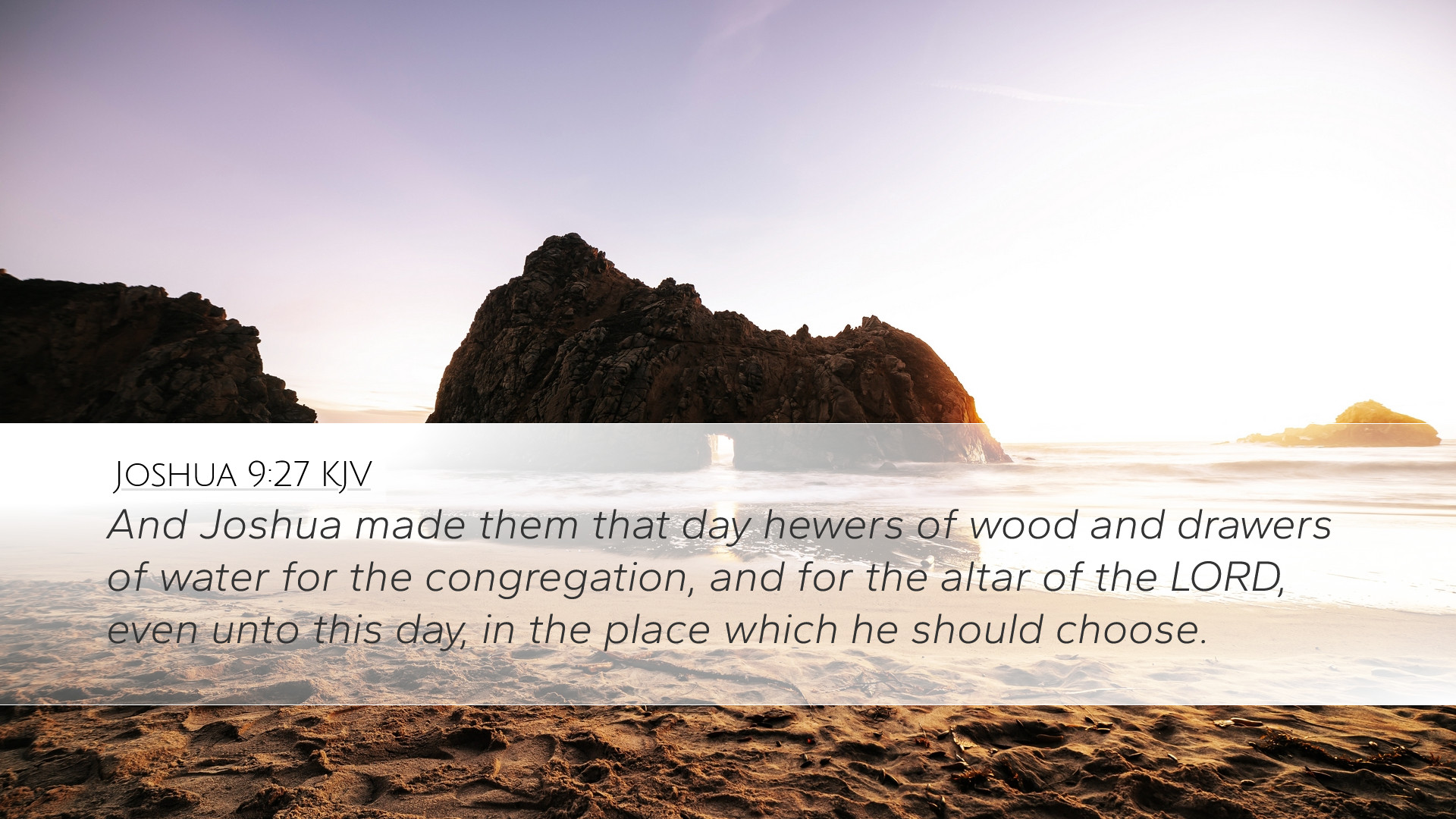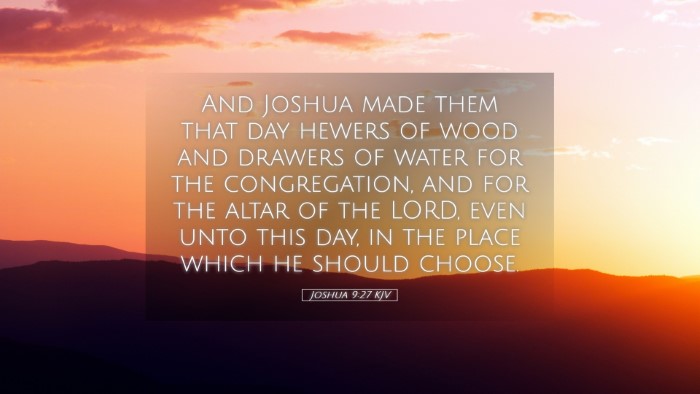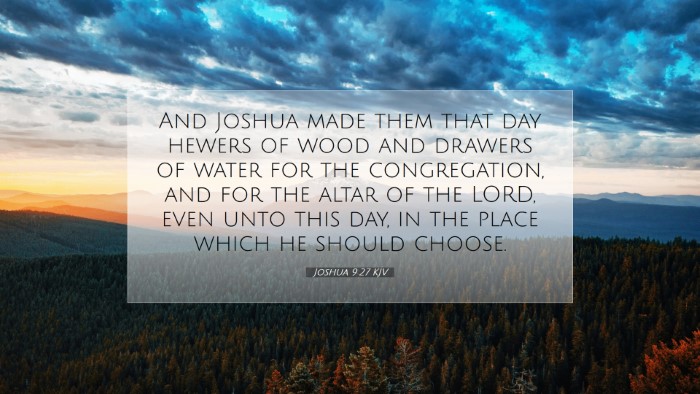Commentary on Joshua 9:27
Introduction
Joshua 9:27 states, "But Joshua made them that day hewers of wood and drawers of water for the congregation and for the altar of the LORD, even unto this day, in the place which he should choose." This verse encapsulates significant events in Israel's conquest of Canaan, particularly the narrative surrounding the Gibeonites. In this commentary, we will draw insights from public domain scholars, including Matthew Henry, Albert Barnes, and Adam Clarke, to provide a comprehensive understanding of its implications for ministry, theology, and ethical living.
Contextual Background
The events leading to Joshua 9:27 are pivotal in understanding the responsibilities imposed on the Gibeonites. The Gibeonites, fearing for their lives due to Israel’s advance into Canaan, approached Joshua under the guise of having come from a distant land. Their deception proved successful, and instead of extermination, they were granted clemency, though they were condemned to servitude (Joshua 9:21).
Theological Implications
The Sovereignty of God
God's sovereignty is paramount in this narrative. Despite the Gibeonites' deceit, the overarching divine purpose remains intact. As noted by Matthew Henry, "God's providence overrules the schemes of men, allowing them to fulfill His greater plan." This incident reiterates that human actions, even when tinged with deceit, cannot thwart God’s intended outcome.
Grace and Judgment
Joshua’s treatment of the Gibeonites raises pressing questions about grace and judgment. While the Israelites had a mandate to conquer, they also displayed mercy. Albert Barnes expounds, "The Gibeonites’ survival reveals the balance in God's character between justice and mercy, demonstrating that some can find favor even in flawed circumstances." This invites reflection on the pastoral call to extend grace while upholding truth.
Cultural Context and Servitude
The Role of Servitude
The role assigned to the Gibeonites as woodcutters and water bearers might appear menial; however, Adam Clarke articulates that such roles were crucial in ancient Israelite society. "These tasks were instrumental for worship and daily life, highlighting the sanctity of service." This emphasizes that even beneath servitude lies a foundation of service to God, as they contributed to the altar of the Lord, aiding in worship.
Lessons for Leadership
Discernment in Decision-Making
From this narrative, leaders are reminded of the necessity for discernment. Joshua’s failure to seek divine counsel (Joshua 9:14) led him to make a hasty decision. Matthew Henry warns, "Leaders should be diligent in seeking God's guidance; reliance on appearances can lead to detrimental outcomes." This principle remains relevant for pastors and leaders navigating complex decisions in their congregations.
Pray for wisdom and insight.
Critically evaluate information presented from outside sources.
Encourage transparency and honesty among congregants.
Application for the Church Today
The Gibeonites serve as a compelling reminder of inclusivity and the potential for redemption. In contemporary application, churches are often faced with the marginalized and the deceitful. Rather than exclusion, the example of Joshua calls for engagement with those who seek belonging.
Engagement Strategies:
- Create outreach programs for the needy and those on society's fringes.
- Discern motives while also fostering an environment that welcomes all who truly seek God.
- Promote service activities that empower individuals, reflecting the servitude established in Joshua's time.
The Nature of Commitment
It is also important to note that the commitment Joshua made to the Gibeonites was not superficial. The servitude was intended to last "even unto this day," indicating a long-term covenant shape of their relationship. This symbolizes the profound seriousness of commitments made, which is vital for any ministry. Barnes emphasizes, "Our word and commitments, especially those made in the name of the Lord, carry significant weight." Maintaining these commitments reflects the character of God’s faithfulness.
Conclusion
Joshua 9:27 encapsulates various themes: divine sovereignty, grace, the importance of discernment, and the structure of service within the community. As we ponder the significance of this passage, we are reminded of our role as stewards of grace and truth within our contexts. Just as the Gibeonites became a part of Israel's narrative, those in our lives today, regardless of their backgrounds or past behaviors, may also play essential roles in God’s purpose, often in surprising ways.


